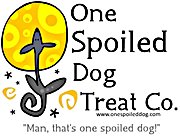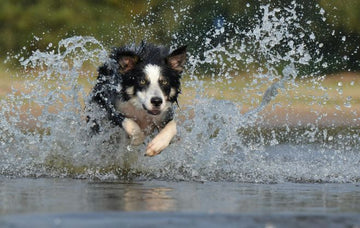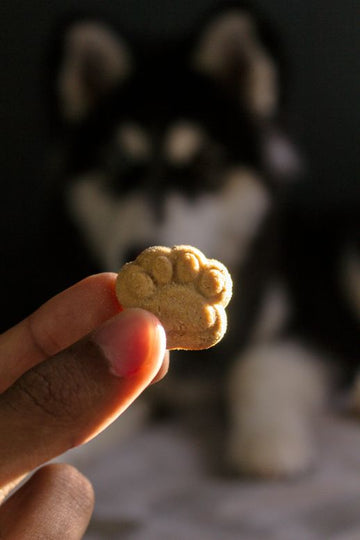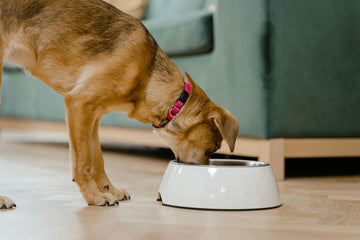Dogs come in all shapes, sizes, and energy levels, and each has unique dietary and exercise needs. Understanding these specific requirements is key to providing the best care for your dog. Whether you have a small breed, an active dog, or a senior companion, adjusting your approach can help maintain their health and happiness.
Small Breed Dogs
-
Nutritional Considerations
Small breeds have higher metabolism rates and require more calories per pound compared to larger dogs. Their food should be nutrient-dense to support their energy levels. -
Treats and Food Size
Choose small kibble or bite-sized treats to accommodate their tiny mouths. Soft treats may also be easier for them to chew. -
Common Health Issues
Small breeds often face dental problems, hypoglycemia, and joint concerns. Look for treats that promote dental health and consider joint-support supplements.
Large Breed Dogs
-
Nutritional Considerations
Large dogs have lower calorie needs per pound but require nutrient-dense food that supports bone and joint health. Opt for formulas with glucosamine and chondroitin. -
Exercise Requirements
Engage them in low-impact activities like swimming or gentle hiking to reduce stress on joints while keeping them fit. -
Common Health Issues
Hip dysplasia, arthritis, and bloat are common concerns in large breeds. Prevent bloat by feeding smaller, more frequent meals and avoiding vigorous exercise immediately after eating.
High-Energy Breeds
-
Nutritional Considerations
These breeds need higher protein and fat content in their diets to support muscle recovery and sustain their energy levels. -
Exercise Recommendations
Activities that stimulate both mind and body, such as agility training, running, and fetch, are ideal. Mental stimulation is just as important as physical exercise to prevent boredom. -
Common Health Concerns
High-energy dogs may be prone to injuries and stress-related behaviors. Be mindful of over-exercising and provide ample rest.
Low-Energy Breeds
-
Nutritional Considerations
These dogs require fewer calories to prevent weight gain. Look for low-calorie, high-fiber foods to help them feel full without overeating. -
Suitable Activities
Engage them in light activities like short walks, gentle play, or even interactive toys to encourage movement without overexertion. -
Common Health Issues
Low-energy breeds can be prone to obesity and heart problems. Regular weight checks and balanced diets are essential.
Senior Dogs
-
Nutritional Needs
Older dogs often need lower-calorie diets with joint-supporting ingredients like glucosamine. Omega-3 fatty acids can also aid cognitive health. -
Suitable Exercise
Low-impact activities like walking or swimming can help maintain muscle mass and joint health without causing strain. -
Health Concerns
Arthritis, dental issues, and cognitive decline are common in senior dogs. Regular vet check-ups and age-appropriate diets can help manage these conditions.
Puppies
-
Nutritional Needs
Puppies need higher protein and fat for growth and development. Choose puppy-specific foods to ensure they get the necessary nutrients. -
Training Activities
Use short training sessions with positive reinforcement. Training treats should be small and soft to avoid digestive upset. -
Health Concerns
Pay attention to vaccination schedules and monitor for teething issues. Choose appropriate chew toys to ease discomfort.
Dogs with Allergies
-
Identifying Common Allergens
Common triggers include wheat, beef, dairy, and chicken. If you suspect an allergy, consult your vet for an elimination diet to identify the cause. -
Hypoallergenic Diet Options
Limited-ingredient and novel protein diets (e.g., duck, venison) can help minimize allergic reactions. -
Treat Alternatives
Look for grain-free, single-ingredient treats that won’t trigger allergies. Sweet potatoes, fish, and coconut oil are good options.
Overweight Dogs
-
Calorie Control
Reduce portion sizes and opt for low-calorie treats. Avoid giving table scraps, which can add unnecessary calories. -
Exercise Adjustments
Gradually increase activity levels with walks and gentle play. Monitor progress and adjust the intensity of exercises accordingly. -
Weight Management Programs
Work with your vet to develop a weight-loss plan that includes diet changes and regular check-ins to track progress.
Dogs with Dental Issues
-
Soft Treats and Foods
For dogs with dental problems, avoid hard kibble and opt for softer foods and treats that are easier to chew. -
Dental Hygiene
Use dental chews and brush your dog’s teeth regularly. Look for vet-recommended products to promote oral health. -
Vet-Recommended Dental Chews
Choose treats specifically designed to clean teeth and freshen breath, helping maintain good dental hygiene.
Conclusion
Understanding your dog’s specific needs based on their breed, age, and health conditions ensures that you’re providing the best care possible. Tailoring their diet, treats, and exercise routines to suit their individual needs will help promote a healthier and happier life.





